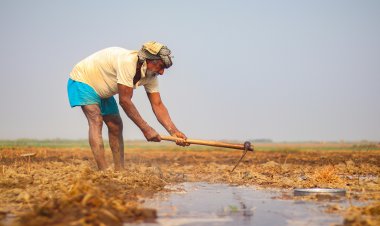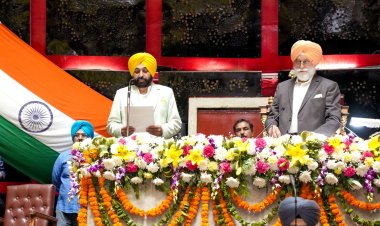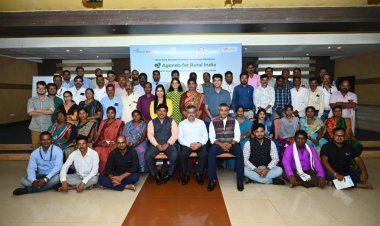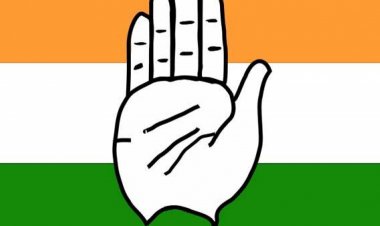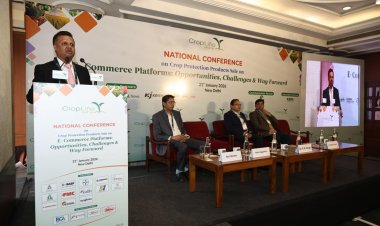Lukewarm response to OMSS policy; tweaking it an option, says Govt
The government is toying with the idea of tweaking the existing OMSS policy in view of the lukewarm response to the sale of rice to small traders under the open market sale scheme in the first e-auction round. The next auction is scheduled on July 12.
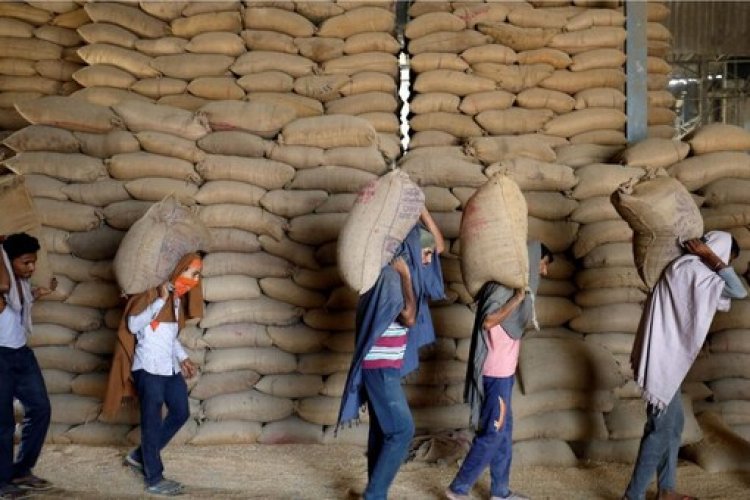
The government is toying with the idea of tweaking the existing OMSS policy in view of the lukewarm response to the sale of rice to small traders under the open market sale scheme in the first e-auction round. The next auction is scheduled on July 12.
While ruling out allowing states to participate in the OMSS for rice, Union Food Secretary Sanjeev Chopra also said the Centre will watch how the subsequent e-auction rounds go before deciding on the next course of action. Asked specifically at a media conference as to whether the government plans to tweak OMSS policy to encourage offtake of rice, the Secretary said: "There are options with the government and it will exercise if required in the next few rounds. We will wait and watch. We don't want to jump the gun. This is the first auction. The government is open to changes." The tweaking of a policy is a dynamic process. If there is a requirement, the government will tweak the policy to the objective, he said.
Congress-ruled Karnataka and the Centre have locked horns over the OMSS rice, with the latter maintaining that it does not have enough stocks to meet the demand if all states start seeking rice from the central buffer stock. As many as 15 states and Union Territories (UTs), including Tamil Nadu and Odisha, are of the view that the Centre's surplus food stock should be used in the larger interest of 140 crore population and "not for a particular section and particular class of people".
Apart from these two states, a similar refrain was heard from Jharkhand, Uttar Pradesh, Rajasthan, Uttarakhand, Gujarat, Andhra Pradesh, Puducherry, Nagaland, Manipur, Maharashtra and Haryana at the recent state food ministers' conference. The Centre had elicited the views of the state governments on this issue in a recent conference where 17 state food ministers were present. "Except for one minister, all others supported the contention of the Union Minister.
Whatever quantity is available in the country, it should be used for the good of the entire population of 140 crore people, not for a certain class or category of people of a particular state or region," he said. The Food Secretary asserted that the OMSS for rice has been started after many years and this has been done to give a signal against any artificial price rise in the retail market.
In the first round of e-auction held on July 5, the Food Corporation of India (FCI) had offered 3.88 lakh tonne of rice but only 170 tonne was sold to five bidders. "Let's not get discouraged with one round not getting good response. .... Usually, FCI does not do routine OMSS for rice. It is primarily done for wheat. For rice, it just started. We expected more (response) for rice, but it has not happened," Chopra said.
More than the quantity of rice sale under the OMSS, he said, "the intention was to give a signal to the market that the stock is with the government and will use it in the interest of common man to bring down the prices. ...That signal is more important..." The Secretary mentioned that the sale of rice under the OMSS has not ended. It will be continued until March 31, 2024, and sales will happen via e-auction every week. He said small traders were not aware of the OMSS rice sale. The FCI is doing adequate publicity and the government expects more participation in the coming rounds of e-auction.
The sale of rice via OMSS was started to improve availability and check the rise in retail prices amid a shortage of rice stock by 13 per cent vis-a-vis the past two years and the possibility of El Nino leading to weather disruptions likely affecting the rice production and procurement.
According to FCI Chairman and Managing Director Ashok Kumar Meena, the offtake of rice under the OMSS was less as the e-auction norms have been tightened to ensure small traders are able to participate. This year, one buyer from a state is permitted to buy only 100 tonnes under the OMSS. Buyers of one state cannot purchase the grain in other states and they cannot sell the procured grain to government agency, he said. "Therefore, the offtake would be less. The entire purpose is to ensure retail prices come down. ...Even in wheat, the offtake is very low," Meena noted.
Ruling out allowing states to participate in the Open Market Sale Scheme (OMSS) for rice as sought by Karnataka government, the Secretary said about 360 lakh tonne of grain is required to meet the demand under the Pradhan Mantri Garib Kalyan Ann Yojana (PMGKAY) at present.
"If we take a hypothetical scenario, if all states come up with such requests, then an additional 360 lakh tonne will be required, which makes it to 720 lakh tonnes. My total procurement is 560-670 lakh tonne this year. Then I am neither able to meet my buffer nor do any retail operations to control prices," he explained.



 Join the RuralVoice whatsapp group
Join the RuralVoice whatsapp group

















